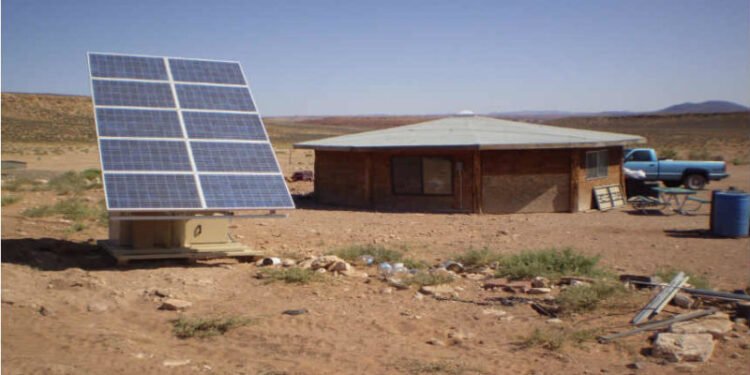– Advertisement –
The landmark COP28 UAE consensus marked a turning point in the global energy transition, committing to triple installed renewable energy capacity to 11.2 terawatts and double the global rate of energy efficiency improvements by 2030.

Off-grid renewables are integral to this goal, as they not only contribute to renewable energy capacity and enhance energy efficiency at the local level but are also uniquely positioned to expand electricity access and advance the Sustainable Development Goals (SDGs) in rural and remote communities.
While the number of people that lack access to electricity dropped from 1 billion in 2014 to 685 million in 2022, the gains in global electricity access has almost flat-lined since 2018, particularly in remote and rural areas of Sub-Saharan Africa. This has led the region to now account for 83% of the global access deficit, a concerning increase from 50% in 2010.
This is where off-grid renewables can play a significant role. Off-grid renewable energy solutions like solar home systems (SHS) and mini-grids have emerged as lifelines for remote, last-mile communities, bringing electricity access to low-income households in underserved areas. These systems have enabled essential services and powering rural economies, benefiting 155 million people in 2023.
Although small in scale, their socioeconomic and environmental impacts are profound, unlocking substantial socio-economic benefits, and contributing to multiple SDGs, especially in emerging markets and developing economies.
Apart from driving transformative progress in reducing energy poverty (SDG7), the off-grid renewable sub-sector supports climate mitigation and adaptation actions (SDG13), while generating cross-cutting benefits across sectors. For example, solar-powered irrigation and processing boost agricultural productivity, ensuring food security (SDG2). These systems also empower women through entrepreneurship, fostering gender equity (SDG5) and enabling sustained, inclusive economic growth through income-generating activities (SDG8), thereby alleviating poverty (SDG1).
Furthermore, off-grid renewable power improves healthcare delivery (SDG3) by enabling reliable electricity for health facilities lighting, vaccine refrigeration, and life-saving medical equipment. Off-grid solutions also increase access to clean water and sanitation (SDG6). With lighting and electricity, students in remote areas can extend their studying hours. They can also access digital learning and improve their education quality (SDG4) with the support of sustainable power.
As technology costs decline and delivery models evolve (e.g. pay-as-you-go scheme), off-grid systems have found new frontier markets in underserved regions, offering an unparalleled opportunity to pursue a sustainable future. The world has indeed seen installed capacity of off-grid renewable energy double since 2014, reaching 12.9 gigawatts in 2023.
Still, critical challenges remain, including policy inconsistencies, regulatory bottlenecks, limited investments, and underdeveloped local supply chains. To triple off-grid renewables capacity from the 2023 baseline to a projected 38.7 gigawatts by 2030, governments and other stakeholders must prioritise the following actions:
- Implement supportive policies and regulations that create an enabling environment for off-grid solutions (e.g. streamline permitting and licensing, market access, tariffs).
- Integrate off-grid renewables into national and regional electrification strategies and plans.
- Promote cross-sector linkages to maximise the impact of off-grid solutions on education, healthcare, and productive uses (agriculture, small-scale industries etc.)
- Reinforce institutional and local capacity building and entrepreneurship to develop a skilled workforce and create sustainable markets through public-private partnerships.
- Drive increased investments and improve affordability and accessibility by implementing innovative financing mechanisms, incentives (e.g. duty exemption), and investment risks mitigation, using delivery models tuned to technology and adapted to end-users’ needs.
- Support development of local manufacturing and assembling supply chains, and introduce quality standards.
- Mainstream gender to ensure equal participation and equitable benefits for women in the off-grid renewable energy sector.
Given the role they play in climate and development goals in rural areas, off-grid renewables deployment efforts in developing countries should be accelerated, underpinned by strong international cooperation and multi-stakeholder partnerships, which the International Renewable Energy Agency (IRENA) says it has been advocating for.
In support of the scale-up of off-grid renewables, IRENA discloses that it provides technical platforms, establishes multilateral partnerships, and facilitates knowledge-sharing, including through its flagship biennial International Off-grid Renewable Energy Conference (IOREC).
Courtesy: IRENA









